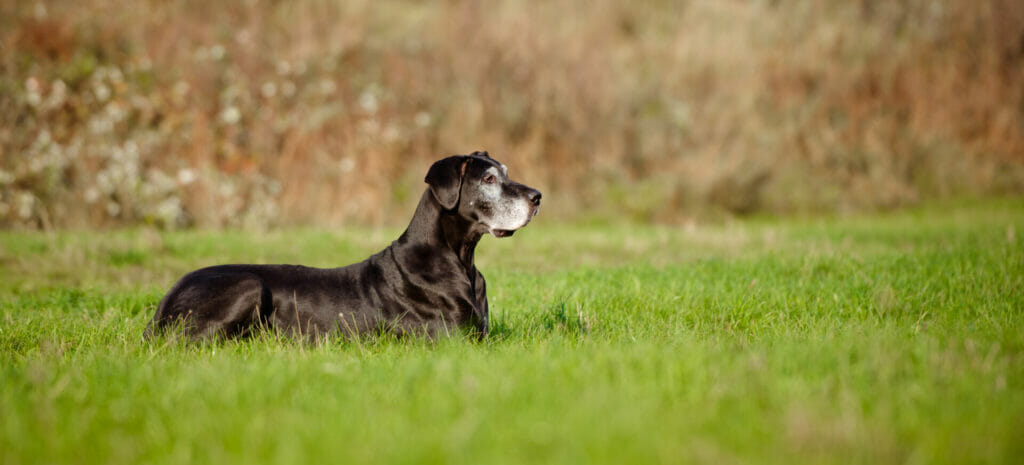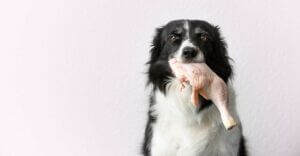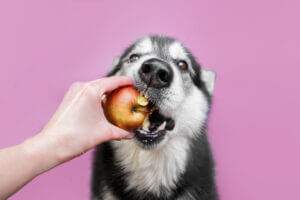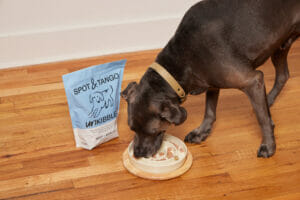As your dog ages and becomes a senior, their needs may shift. Older dogs may experience orthopedic challenges such as arthritis pain or lack of conditioning and coordination. Other senior dogs may lose vision or hearing. As your dog ages, it’s important to consider how activities and routines may need to shift.
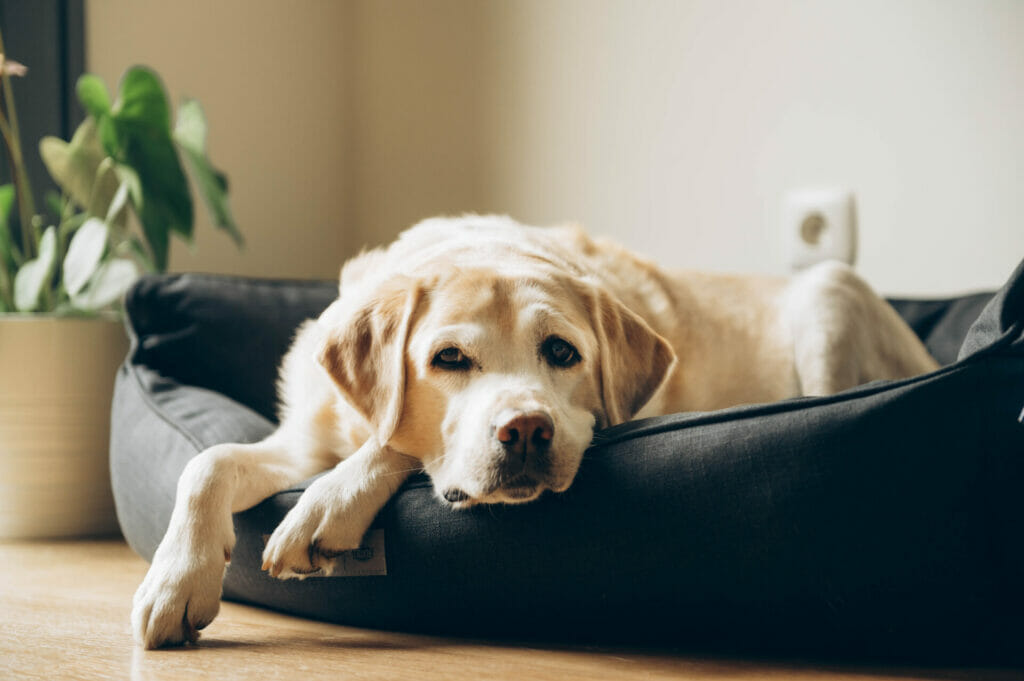
Follow Your Senior Dog Lead
When considering a routine, treat your senior dog as an individual. Some senior dogs can maintain an active lifestyle that would tire out dogs half their age. Whereas other senior dogs slow down to avoid pain, discomfort, and injury, so each dog is different. When considering your senior dog’s routine, be flexible and follow your dog’s lead on the activities you pursue together. Also, remember that your dog’s needs might change day to day.
Get Support
As your dog ages, communicate with your dog’s veterinarian regularly. Don’t skip regular physicals or evaluations. Veterinarians discuss any health limitations your dog may have. Your dog’s vet can advise on health conditions that your senior dog is at risk for. They may also inform you of any medications or supplements to incorporate into your dog’s routine. For example, if your dog would benefit from anti-inflammatory medication or joint supplements to continue being comfortable while they age.
Seek Out Specialists
You may want to consider including veterinary physical therapist visits into your senior dog’s routine. A veterinary physical therapist can help your senior dog to age more gracefully and proactively help you to prevent injuries. Veterinary physical therapists can create personalized exercise plans for your aging dog. They can also provide your dog with preventative support, including canine massage, laser therapy, underwater treadmill, acupuncture, and chiropractic care.
New Activities For Your Senior Dog
The old saying “You can’t teach an old dog new tricks” couldn’t be further from the truth. Senior dogs thrive when given opportunities to use their minds and bodies. Make sure to add in opportunities for your senior dog to learn new things or build on existing skills in their routines. Consider teaching your dog some new tricks, practicing some tricks or obedience behaviors you haven’t worked on in a little while, or exploring a new dog sport or activity together. Lower-impact sports like Scent Work or scent-based games at home where you hide treats or toys for your dog to find are a great way to provide enrichment into your senior dog’s routine. Ensuring your dog has activities to do can help reduce boredom for your senior dog and help them stay more physically and mentally active as they age.
Shorten Walks
Although it’s important not to push your senior dogs too hard with exercise, regular exercise and enrichment are important for older dogs. Keeping your senior dog appropriately active can even help them age more comfortably and stay active longer. If you’re finding that your senior dog is struggling to keep up with the length of walks you used to take, you can always adjust your dog’s walk routine to be shorter or a route involving less strenuous hills. If your senior dog is having a slow day, it’s ok to skip a walk that day or shorten the distance you walk.
Limit High-impact Activities
As your senior dog ages, you may want or need to limit the number of high-impact activities that your dog is doing that can cause strain on their body. For example, instead of marathon fetch sessions which can be hard on your dog’s joints, consider engaging your dog in different kinds of games and activities like scent-based games. It’s important for senior dogs to stay active, but especially if your aging dog has started to experience a decline in physical fitness, lower-impact activities may be best. Limiting high-impact activities involving lots of jumping or fast starts/stops, like long fetch games, doesn’t mean your dog can’t have fun, and there are many ways to spend quality time with your dog. Puzzles and other games that challenge your dog’s brain can be especially useful for helping dogs stay engaged and active without being hard on their body.
Don’t Slack On Grooming Your Senior Dog
When dogs start to age, it’s important to groom regularly. All dogs, regardless of breed and coat type, benefit from regular brushing to remove dead skin and fur. This is also a great way to check your dog for any new lumps and bumps to ask your vet to check. Regularly trimming your dog’s nails helps your them stay active for longer because of better traction on hard, slippery flooring. Many dogs develop dental disease as they age. Therefore, adding toothbrushing into your senior dog’s weekly, or ideally, daily routine helps prevent or limit the effects of tooth decay. Here’s your reminder to continue dog’s routine can help them look and feel their best longer.


